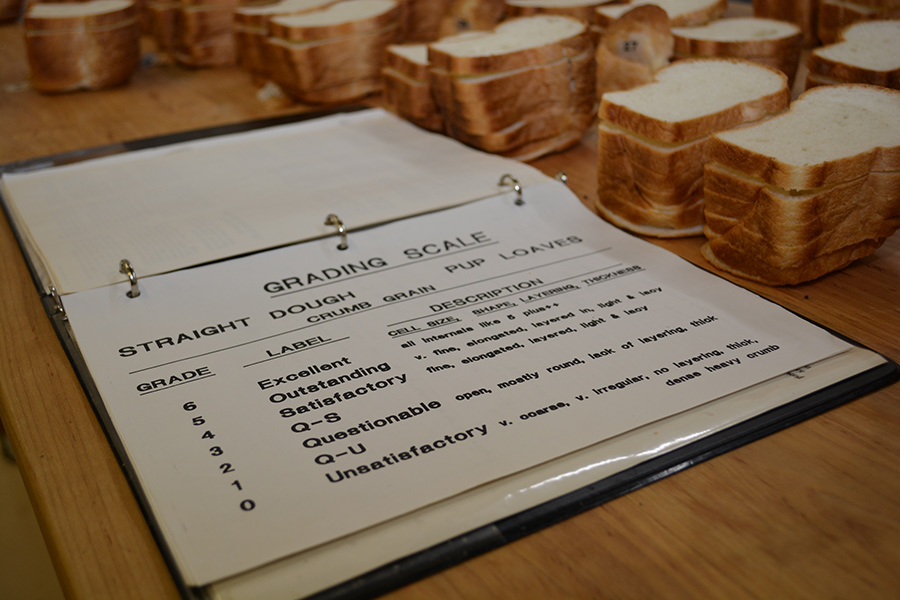Not All Wheat Makes Good Bread
Monday, November 21, 2022

Remember as warm bread and rolls are eaten and enjoyed this holiday season, much time and research has been done by both farmers and scientists to ensure milling and baking companies receive wheat to produce quality flour for the best eating experience.
In mid-July this year, 4-H and FFA students, along with parents and advisors, begin arriving around 8:30 a.m. at the Payne County Fairgrounds with 5-gallon buckets of wheat. They formed a line into one of the buildings where Oklahoma State University Extension educators, both current and retired, Oklahoma Wheat Commission personnel and OSU agricultural economic faculty member, Dr. Kim Anderson, assigned identification numbers and placed the buckets in a line on tables according to 4-H or FFA.
Soon, Dr. Brett Carver, head of the OSU Wheat Improvement Team, began walking down the long rows of buckets to select and rank the 25 visually best entries; this was the culmination point after planting wheat the previous fall and harvesting this late spring/early summer. The entries are ranked from visual characteristics relevant to grain marketability: color and color retention, kernel size and consistency, and cleanliness. The top 25 entries in 4-H and FFA continued in the annual Oklahoma 4-H/FFA Wheat Show Quality Improvement Program.
This program has been occurring for over 30 years, and is believed to have been started by Gus Page, Extension agricultural economist. It was created to make future young farmers aware that growing a quality, proven wheat variety with desired milling and baking characteristics is better for the economy and reputation of Oklahoma wheat exports.
The top five placings in both 4-H and FFA would receive a trip with their family to tour the export facilities in Houston, Texas. Through the years, Oklahoma milling and elevator companies - Shawnee Milling, ADM Enid and Union Equity - have helped with the quality tests for the entries and placings. Over time, the contest has evolved.
Now, it has become a scholarship program, and Brett Carver has the entries analyzed like part of a wheat breeding program. The top 25 entries are analyzed on the OSU-Stillwater campus in the Baking Lab and Wheat Quality Lab at the Robert M. Kerr Food and Agricultural Products Center.
Tests run on the wheat include kernel hardness and protein percentage. Then, the wheat is milled into flour. The flour tests performed include mixograph, which provides a rapid dough quality and strength test, and baking performance, which consists of the amount of water needed, loaf volume and grading of the bread crumb.
Current sponsors of the scholarship contest are the Oklahoma Department of Career and Technology Education; Oklahoma Genetics, Inc; Oklahoma State University; Oklahoma Wheat Commission; Oklahoma Wheat Research Foundation and WestBredä Seeds, with over $10,000 in scholarships awarded.
